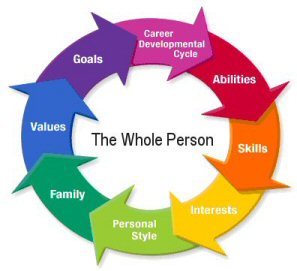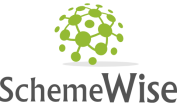ADVISORY: Community nursing has capacity to accept new customers.
AVAILABLE IN CANBERRA & QUEANBEYAN ONLY
For NDIS PLAN-MANAGED or SELF-MANAGED participants OR self-funded individuals
aaa
SchemeWise community nursing service is your trusted nursing support,
providing worker training, assessments and health management...
aaa
NDIS COMMUNITY NURSING SERVICE

SchemeWise community nursing service provides person-centred health support based upon a 'biopsychosocial' approach. It considers the 'whole' person placing them at the centre as the expert over their health.
The service also utilises each person's particular health and wellbeing goals to guide the design and delivery of supports.
Our community nurses can help with health delivery and support for a range of matters, including:
- ⇒ delivery of a service support for maintaining a health condition (e.g. wound care / pressure management, chronic diseases management, medication administration)
- ⇒ development of health and management plans for self or workers
- ⇒ management of specific conditions like stroke, COPD, diabetes and epilepsy
- ⇒ supporting people with cognitive, occupational and mental health problems
- ⇒ catheter management services
- ⇒ blood pressure, and other essential health monitoring
SchemeWise registered nurses are highly qualified health professionals offering you quality-assured health supports, at your home or residence.
They will work with you to develop a nursing care plan (service goals) and track progress/outcomes, set up a patient-controlled record, and provide health-related services in the privacy of your home or residence. Where necessary, they can also work with your GP or medical teams and liaise with, and refer to, other community health services or supports too.
This service is available to people aged 10 - 85 years. For children younger, they are required to utilise the NDIS early childhood intervention program, and can only access this service where broked by their ECEI provider.
Our community nursing specialist area is focused toward people living with neurological conditions (stable or degenerative). This includes ABI, spinal cord injury, epilepsy, Parkinson's, stroke, MND, cerebral palsy, MS, etc. Our community nurses work with most other disability and health conditions too (e.g. ASD, pain management, asthma, diabetes) - please talk with us about your needs.
aaa
When to use community nursing support
People with complex health or disability needs should consider seeking the advice and support of a community nurse. Our registered nurses are certified and quality-assured health professionals who can help you manage complex problems or planning needs, and support you, your family, carers and services to learn how to help you, and/or understand your condition and needs (including when and how to be aware of changes, such as deterioration, requiring medical help). Our community nurses also work at the interface between hospital and home, liaising with your health and medical services, as required, to ensure smooth transition planning and needs within the community (e.g. provide follow-on care and support at their home/residence).
Providers can use our community nursing service for training and complex planning advise too. It is a legal requirement that providers and their staff only deliver health-related support under the direction of a healthcare professional - like a community nurse. Providers also have an obligation to provide training to ensure an appropriate competency of their staff in delivering safe and fit-for-purpose, supports. They may otherwise void insurance coverage and be liable for any customer injury, however well service provision, is intended.
SCHEMEWISE COMMUNITY NURSES provide a wide range of clinical support services such as:
» Development of health routines and clarifying needs with support teams, and safety management planning
» Care / management plans - from asthma management to epilepsy and most things in between (chronic condition management)
» Psychosocial planning - manage concerning behaviour, community engagement needs, etc
» Support worker training - including medication, pressure, continence management or specialised equipment use.
Community Nursing costs
SchemeWise community nursing supports are undertaken at the applicable NDIS rates - whether you are already in the NDIS or seeking further information to support pre-planning ahead of joining the NDIS.
Under an NDIS plan, people commonly access community nursing via 'Capacity Building - Community Nursing or Daily Living' funds, or if they do not have these, under Core funds - health supports delivered under 'Activities of Daily Life.'
Service charges include direct time, indirect activites (email, phone, clinical notes, provider liaison, staff training, etc), and associated travel costs. If your circumstances are changing, SchemeWise can provide a community nursing report and quote for your support needs, to assist NDIS plan reviews too.
NOTE: Due to the ongoing community COVID-19 situation, you must provide all service PPE for our nurses use. This can be purchased under your NDIS plan (or other scheme plan) and we can provide advisory on PPE needs. This is a necessary requirement as SchemeWise can no longer seperately claim this cost to your scheme provider. Under current Public Health Regulations in NSW/ACT, additional precautions for a close proximity nursing service include an N95/KN95/P2 respirator mask, face shield or safey glasses, disposable full front and sleeve gown and non-sterile (at least) goves. It is recommened that people have set-up a PPE station for our nurses use BEFORE they enter their home. The time taken for PPE use (donning/doffing), is an additional cost of service. SchemeWise nursing services are only available for people aged 16 years and older. Registered nurses are mandatory reporters and must take action where there is any suspicion of abuse, neglect, exploitation, or other violences, etc. Dysphagia management is specifically out of scope of this service requiring speech pathologist guidance. [This information was last updated, March 2024].
aaa
TRAINING SUPPORT
- ⇒ Medication management - considers the effects of prescribed medications and is designed to provide context around how medications affect a person in their daily life. Nurses cannot comment on why a medication is prescribed, the dose provided, etc. Our community nurses focus on helping put in place options to remember to take medications or training support teams with medication management principles and knowing how to look out for medication problems (e.g. serious side effects).
- ⇒ Personal safety - such as alerting for family or services so you can live as independently as possible (e.g. knowing when to take action such as calling an ambulance and how to keep a person safe until it arrives).
- ⇒ Manual handling - is intended to ensure your workers and you are not injured during transfers, like from a wheelcahir into bed. traning seek to impart the proper techniques to ensure safe work and reduce injury risks.
- ⇒ Minor health condition management - the NDIS also allows minor or basic health-ralted functions to be undertaken by an enrolled nurse or support worker. When utilised it is called a 'delegated' activity, which these parties must be trained or assessed, to perform (e.g. wound dressing change). SchemeWise community nurses (registered nurses) cas provide training for delegated minor health support needs - however please bear in mind that the word 'delegated' under the NDIS guideline, means our community nurse must undertake regular monthly superivison to ensure the health matter is being appropriately managed by an enrolled nurse or support worker. This can only be undertaken with ongoing oversight of a registered community nurse, in place, per NDIS Guidance.
Community nurses CANNOT delegate care planning, either. Registered nurses are SPECIFICALLY required to undertake such prcoesses themselves, or other workers to follow, plus review these and adjust them, at regular intervals. At minimum review is necessary every 3 months to avoid undue risk. However, please be advised more impactful issues may require more frequent review and involvement. Our community nurses will work with each person to advice how their needs can be best met, and the proccesses we must follow together, for safety reasons.
aa
What is a nurse-based assessment
Registered nurses are trained to undertake a wide range of health, disability, injury and rehabilitation-related assessments which fall into four broad categories:
1. Basic - a short assessment type to inform care planning and an initial actions for health and safety - often utilised to assist support worker services to operate and provide safe assistance;
2. Focused - an assessment focused on a particular body system or region and detailing all aspects of functioning, this would usually include a report with 2-3 assessment instruments to inform an evidence-base or care plan or quote;
3. Managed (Quoted service) - an assessment which is done at a number of time points - can be weekly, fortnightly, monthly, annually, (i.e. over shorter to increasing duration) - this might include regular vulnerability, risk, continence, wounds, pressure care, cognitive, diabetes, falls or other functional assessment where a person's circumstances may change over time and updates are required for support teams; or
4. Comprehensive consultation (Quoted service) - a detailed type of assessment which takes in all aspects of the person from their lived circumstances to their health and other needs. Comprehensive assessments may also look at a number of issues and how they co-exist within a person and consider a range of issues at the same time. These type of assessments may be 'requested' by the NDIS to inform its understanding of a person's changed planning needs, provde addiitonal or indepedent review of their coircusmtnaces and/or neesds, or where there are changed needs to transition from hospital to home.
A further type of assessment is known as a co-morbidity assessment. These are a comprehensive assessment which looks at a number of conditions together to draw evidence about impacts on you overall. These assessments are generally much more complex and SchemeWise will advice you whether this type of assessment will be necessary to ensure you have the best information available to you. These assessments are not commonly required, however they can be helpful in broader processes like going to the AAT too. Reports of this nature often include relevant survey's of the literature as well as statistics from sources like the AIHW and ABS, as well as other academic/clinical evidence-sources.
Our nurses also work and consult across areas including spinal cord injury, psychosocial nursing, learning and disability supports, neurological / brain and epilepsy, medical issues, continence management, wound and pressure managemtn needs, intensive support needs, staff/carer training, and in general behaviour apporpaches (e.g. intelelctual dementia) just to name a few roles.
DON'T SEE YOUR REQUIREMENT LISTED - please get in contact so we can assist further.
aaa
 About SchemeWise nursing assessments
About SchemeWise nursing assessments
SchemeWise nursing assessments are a community nursing initiative delivering a report. These can augment information you may need to provide the NDIA about how your disability and health issues co-exist, or to bete rnform your suport poeple onhow to helpyou better. Nursing assessments can enable the NDIS to gain an understanding of your health/disaiblity needs, based on where you live, how you interact in your community, and how your circumstances affect the services and supports you need to reach and achieve your goals.
Nursing assessments are a GREAT alternative to an OT assessment and you can often
access this assessment service much quicker than accessing an OT also.
SchemeWise nursing assessments can help in different ways:
PROVIDE PRE-PLANNING INFORMATION (new NDIS particiapnts ONLY) - if you need more information to help the NDIA decide how it should support you; obtaining a nursing report before you see your Local Area Coordinator or NDIS planner to develop your plan is the best option. A pre-planning nursing report is a privately paid service, which delivers additional functional and capacity-based information specifically for NDIS planning processes.
PROVIDE ASSESSMENT & REPORT INFORMATION - this kind of assessment can occur if the NDIS has considered your information but has advised that it does not have the information needed to decide if you should receive supports. While this does not happen often, if it does occur to you, a SchemeWise nursing assessment can consider functional, psychosocial, health and disability issues and provide holistic advice in the form of a focused or comprehensive report. The nursing assessment prcoess considers the information you have already obtained from doctors, carers, family, psychologists, therapy providers, etc, and seeks to distil this into how your circumstances impact you on a day-to-day basis. Especially when other providers are unable to give you additional information (e.g. an occupational therapist), a nursing assessment report may be a way of helping the NDIS understand you!
PROVIDE INFORMATION TO AND TRAIN SUPPORT TEAMS - SchemeWise community nurses are health experts who can help train care and support teams of either NDIS providers (e.g. in service), or NDIS participants (service delivery training). Our nurses can help teams learn about nutrition/diet, hygiene, personal care, basic wound and skin integrity management, safe transfers (sometimes known as manual handling), and with daily medication management practices too. For people with new/changed needs, they can help direct care teams learn how to continue to provide high-quality support, or adjusting service requirements, as needed.
PROVIDE INFORMATION FOR PLAN REVIEWS - a SchemeWise nursing assessment report can also be used to provide additional or new information when a planned or unplanned (reassessment) NDIS review, is required. Most often an unplanned review occurs if your circumstances change as opposed to your annual plan review process. Either way, when a review occurs, a nursing assessment reportcan add new information by assessing health, disability, functional and capacity issues across various body systems. It can also draw linkages into how a 'lived problem' may impact the services and supports you use and/or allow the NDIS to gain a better understanding of why you need higher levels (or types) of supports, to achieve your goals.
- ALL REPORTS ARE PROVIDED TO YOU -
How is a nurse assessment conducted

When our community nurses engage with a person they consider all aspects about them in designing person-centred care and supports. A SchemeWise registered nurse will come to your home or residence, and talk with you about what your supports, needs and services are. They will spend time with you understanding what the issue you need assistance with is, and ask for any information you have about it. They may, if required, look at physical, psychological, cultural, functional, lived environment and personal circumstances to help understand you. And they may also ask about family support, personal history or other issues you think are important. All information collected is kept private - we only use information agreed with you for planning/reporting.
After the registered community nurse leaves they will prepare a report outlining the assessments undertaken, your needs and what actions or services are required to support you, safely. They will utilise relevant history about you, along with an apporpaite clinical evidence-base to inform your support needs. From this, they will make a set of recommendations for care, support and services to assist you from a safeguarding and human needs perspective. Reports are usually provided within a short timeframe (e.g. 14 days from assessment - although more complex issues can vary this guidance). It is important you have all the information required to assist an assessment and report too - otherwise it may take longer.
aaa
Report and Assessment Costs
SchemeWise registered nurse assessments/reports are undertaken at the applicable NDIS rates - whether you are already in the NDIS or seeking further information to support pre-planning ahead of joining the NDIS.
If you are already an NDIS participant, your NDIS plan may be able to cover the cost of a nursing assessment report (either under Capacity Building or Core - health support items). When you your representative or support coordinator talk to SchemeWise, we can advise you further on this.
For those people wanting to undertake an NDIS access report you must cover the cost of a nursing assessment yourself. Just remember that the cost is often much less than seeing a specialist and getting a health report. It may also be CONSIDERABLY more useful for the NDIS as a medical specialist will generally only report that you are being supported for a condition whereas a disability nursing assessment can consider all the range of information, impacts, and other issues which need to be included around daily functioning because of your condition. This service therefore provides a clinical nursing functional assessment. SchemeWise clinical nurses use tried, trusted and well researched instruments to undertake these assessments too providing you a level of assurance when interacting with the NDIS. In most cases, SchemeWise nurses can utilise specific assessments the NDIS looks for where these may be prescribed for certain conditions too.
SchemeWise can provide a guide price when you talk to us about getting a report.
TYPES OF ASSESSMENTS 
-
- ⇒ Continence issues - including stoma /catheter care
- ⇒ Feeding issues - swallowing, mouth health, perenteral, PEG
- ⇒ Neurological issues - impact of stroke, brain injury, concussions, Parkinson's, MS, others
- ⇒ Endocrine issues - such as diabetes, hormone problems (e.g. thyroid, gut)
- ⇒ Skin integrity & wound / pressure care needs
- ⇒ Renal issues - including dialysis, kidney disease, or acute problems arising with other conditions
- ⇒ Gastrointestinal issues - vomiting, feeding, bowel care, etc
- ⇒ Mental health / psychosocial problems - functional issues with schizophrenia, bipolar, BPD, depression, anxiety and others
- ⇒ Thinking and learning issues - including intellectual disability, cogntivce screening
- ⇒ Cardiovascular & pulmonary (breathing) issues - and how these impact your life
- ⇒ Nutrition, weight management, hepatic conditions
- ⇒ Mobility issues - planning for safety at home and in the community (functional independence)
- ⇒ Activities of daily living - assessing where deficits are present and the types of needs to live independently
- ⇒ Needs assessments - a global functional report to seek funds at a plan review
- ⇒ Nurse-based Physical Assessment
- ⇒ Nurse-based Social Assessments
- ⇒ Chronic Pain and/or other medication management needs
- ⇒ Reproductive health - from teens through rest of life (esp. for people with intellectual disability and autism)
- ⇒ Services access issues - where you may need a service designed to meet your specific needs (and support coordinator or other support tranining involvement)
- ⇒ Continence issues - including stoma /catheter care
SchemeWise community nurses can assess and report against the following measures (amongst others):
-
- » Montreal Cognitive Assessment (MoCA)
- » Participation and Environment Measure - Children/Youth (PEM-CY)
- » PROMIS - child / youth health
- » General health screen (all cognitive & physical conditions) - SF-12 assessment
- » Stroke: Impact Scale / Ranchos / mRankin / Upper Limb Functional Scale
- » Spinal Cord Injury: Lifestyle Scale / Impairment Scale
- » Parkinson's Disease Rating Scale
- » Huntington's Rating Scale
- » Motor Neurone Disease: Functional Rating Scale
- » Multiple Sclerosis (MS): Status Scale / Disease Steps
- » Functional Independence Measure (FIM)
- » Brain Injury: Care and Needs Scale (CANS)
- » World Health Organisation (WHODAS 2.0)
- » Instrumtenal Activities of Daily Living (over 50 years)
- » Activities of Daily Living (less than 50 years) / Barthel Scale
- » Falls Assessment & Risks: various
- » Psychosocial (mental health functional impacts): Life Skills Profile-16 (LSP-16) / Kessler Psychological Scale
The NDIS also preferences certain assessments (see here) and, where relevant, these are utilised.
aaa
OTHER REASONS FOR ASSESSMENTS
There are a lot of reasons people may seek assessment, education and training, not just for NDIS procedural issues.
These are some further examples our communtiy nurses manage:
-
- As a result of a medical condition a second one arises and you need to understand how to management both problems.
- Your's is a complex condition, and you, your carers or family require further education/training for you to be safe.
- An acute issue arises and you may have gone to hospital. However, when returning home you need to replan your support environment BUT DON'T have support coordination in your plan.
- Changed circumsntaces and needs after hospital and now need to use hospital-type equipment like pumps, oxygenation devices, etc.
- There has been a critical incident and you and your support staff require support, education or training to understand the causes or effects of the incident (please note critical incident debriefing and relates services require a team of 2 people - this is a requirement of good practice).
- Assisting legal processes such as undertaking an appeal thorugh the Administrative Appeals Tribunal (AAT) - these reports are a 'comprehensive consultation' and provided in a medicolegal form to assist AAT processes and clarify your health and disaiblity support needs. There are several prominent areas for health support under the NDIS, which it must have regrd too under its principles of funding. (Note: some matters may be specifically considered a healthcare issue and must be sourced from the health sector. Our nurses can advise on the difference between these also).
 Why not get in contact or speak with us now...
Why not get in contact or speak with us now...

(24/7 automated - we usually respond within one business day)
Providers can also use our referral form
aaa
aaa
aaa
Service Disclaimer:
SchemeWise reserves its right to discuss and discern its capacity for nursing support within each individual's circumstances, becoming knowledgeable of their needs, and the safety in which a service can be delivered. While SchemeWise nurses can assist other providers to understand medication delivery requirements and management needs, our nurses do not generally deliver medications on a daily or regular basis. Where this latter need exists people are recommended to connect with their primary care nurse at a local GP clinic or obtain community nursing support instead.
SchemeWise nursing services cannot provide support and health-management in situations where a health matter is acutely unstable as this would be unsafe and intensive monitoring is not possible. Community nursing services are NOT a critical care, or life emergency, service. Where such issues arise phone 000 and ask for an ambulance - immediately.
Our nurses are mandatory/voluntary reporters under laws and regulations (e.g. NDIS Code of Conduct) and may be required to make a report if they believe you are unsafe, seriously unwell, being abused, exploited or neglected in any way, concerned your condition is deteriorating, and/or require urgent medical treatment (any reason). Community Nurses can only undertake medication administration where safe to do so (e.g. if a medication affects your alertness they cannot give such medicine where there is no one else present to provide support ,or care; as this would be unsafe). Nursing services are NOT intended to replace a support worker service.
SchemeWise nursing assessments and reports cannot make recommendations for AT equipment if you are looking for this. AT recommendations require an OT (or physio) assessment. Community nurses can however complete functional and cognitive assessments and make recommendations for health consumables and supplies, to help the NDIS or other schemes like lifetime care, veterans or aged care sectors understand what may be required through a planning response to support a person.
It is important to also recognise that our nurses must be safe at all times when providing a service in a home, community location or other residential setting - your home/residence is their workplace when they come to you - please ensure you or others do not smoke, have animals present, display bad behaviour such as swearing or verbal/physical aggression, and ensure your environment is tidy and clean, etc. It is preferable unless poeple are directly there to support you, that you are able to engage freely and that the nursing service operates, without interruption. Our nurses will not tolerate bad behaviour from you or any person's, and you should be aware of this too. They have a right to end a service immediately, at cost to you, if any issue arises and in their opinion, they are placed at any kind of undue risk (includes non-disclosure of any COVID-19 or other infectious illness on arrival). During heightened community issues (e.g. COVID or flu outbreak) our nurses may call ahead and advice they are OK and check you and others at your home are OK too. Our nurses carry face masks and can wear these anytime - just ask.
Occassionally, if certain risks or impediments exist for you, or your nurse, we may need to change a face-to-face service to teleservice/phone instead OR may offer a temporary replacement if our service capacity is affected (any reason) OR may seek a permanent replacement if we think this is the best option for you and will advise you accordingly. Of course, you have the right to NOT take up any of these options, where advised, but if you make this choice you must bear the responsibility to ensure your health needs are met by self-referring to a relevant health service (community health centre, your doctor, or a hospital). If you have any questions we are always happy to assist.
aaa
